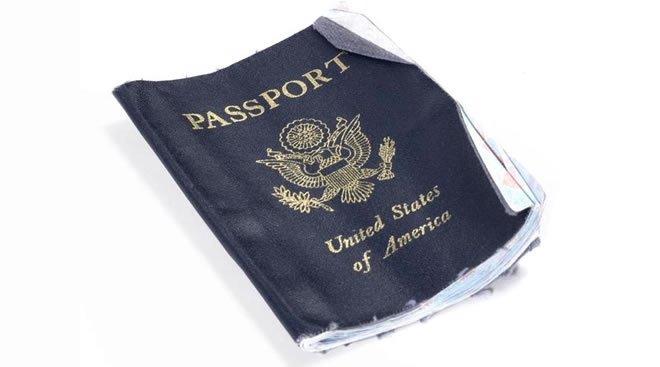by Basim Usmani
Thursday, July 10, 2014

WHEN MAYOR Walsh deemed June Immigrant Heritage Month, I wanted to celebrate. But instead Homeland Security was busy detaining me at the Lewiston-Queenston crossing on my way back to Boston from my religious wedding ceremony, which took place in Toronto. Much of the positive rhetoric lauding immigrants has been meaningless to second-generation Muslim immigrants like myself. Each time I return from Canada, I get detained by US Customs and Border Protection and Homeland Security for six hours, which adds up when you have a Canadian fiancée.
This is especially insulting because I have no criminal record. That’s why such rhetoric has rung slightly disingenuous. The mayor’s plan for Boston’s diverse future, much like the surrounding rhetoric by public policy figures, includes words like “international,” “innovative,” and “inclusive,” but it doesn’t take into account the second-class treatment of people like me or the other estimated 40,000 Muslims in the Boston area.
While the majority of Muslims living in Boston are African-American, second-generation immigrant Muslims represent a growing portion of the local community. It was my trip to Pakistan last year, to attend my cousin’s wedding and perform with my band, that led to me being flagged at the border. Although politicians talk about meeting the needs of a new, more mobile generation, and of building a more inclusive community, that rhetoric clashes with the reality of national policies that do exactly the opposite.
In 2009, President Obama signed the executive order re-establishing the White House Initiative on Asian Americans and Pacific Islanders. According to Kiran Ahuja, executive director of the White House initiative, “The Asian American and Pacific Islander community grew nearly 50 percent from 2000 to 2010 and will more than double to over 47 million by 2060.” In Ahuja’s words, “with this rapid growth comes an urgent need to address the daily issues and challenges our community members face.”
As someone who went to high school in Lexington, I know the visa for Pakistan in my passport should not be controversial. Lexington High, by today’s estimates, has a student body that is 30 percent Asian-American, and Lexington is surpassed only by Quincy as the Asian-American cultural center of the Boston area. While my band — a self-styled Muslim punk band whose most popular songs are in languages like Urdu and Punjabi — may seem odd to outsiders, it fits neatly into what the former “tony suburb” of Lexington has become. Hindu religious services take place under the dome of our high school gym. Dawen, a viral YouTube star who graduated from Lexington High, sings American R&B in Mandarin. Mindy Kaling, the first Indian-American to write and star in her own sitcom on the NBC network, went to middle school in Lexington.
And yet, coming back to the United States invariably involves the confiscation of my cellphone and laptops, the recording of my assorted passwords, and has twice involved me being handcuffed and put inside a secondary holding room. The Customs and Border Protection officials look like they’re killing time, and claim to be “waiting on a call from D.C.” before letting me go. When a Homeland Security agent finally arrives, usually three hours in, to screen me, the first question I’m asked is surreal: “So, why are you here?”
The political rhetoric that ties immigrants to innovation, as well as the other side of the debate that raises alarms about “unskilled immigration,” reduces a population that is estimated to be 45 million people into desirables and undesirables. “Model minority” status is awarded to certain immigrants to make them more palatable. As a Pakistani-American, I have experienced being both parts of that divide. Since the Boston Marathon bombing, our “model minority” card has been revoked. Asian and African Muslims, Latinos, and countless other non-white minority groups have reported their interactions with border authorities and the Transportation Security Administration being tainted by racial stereotypes. In 2012, TSA officers at Logan Airport wrote open letters alleging that management had encouraged the profiling of minorities. As W.E.B. DuBois waxed just over a century ago, “How does it feel to be a problem?”
When Homeland Security interrogated my wife, she was asked if I ever had traveling companions she was not familiar with or if I traveled to countries outside of her knowledge. My wife responded bluntly, “Are you asking if my husband is a terrorist?” I have a redress number from the Department of Homeland Security TRIP form I submitted, which is for people who have been wrongfully flagged. Though I recieved a letter from the Homeland Security eight weeks ago saying they were looking into the matter, I do not have high hopes for their outdated and bureaucratic system. During a previous detention, in which my parents were present for my detention, my father had a heated exchange with one of the officers manning the desk. “My American passport gives me access to travel around the world,” he said. “The only problem is when I try returning to my own country.”
America’s border-patrol system, which has exponentially bloated and gotten more compartmentalized since 9/11, is outdated. If there is something that needs to be “innovated,” it’s that.
Basim Usmani is a member of the Muslim punk band the Kominas. His reporting has been featured in Beta Boston, VICE, and The Guardian.
This article was originally published in the Boston Globe.